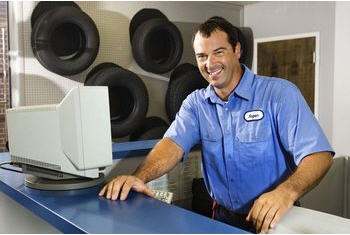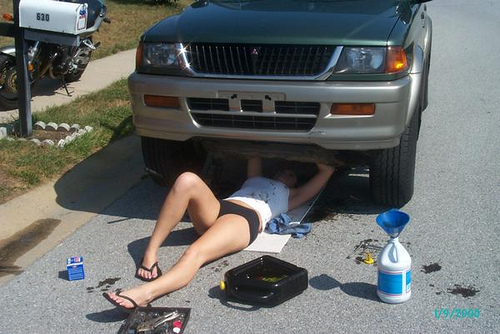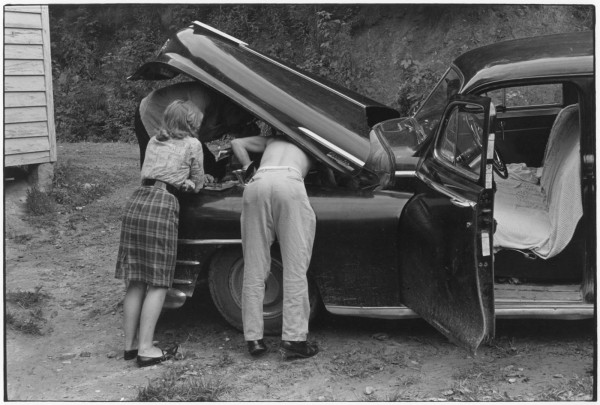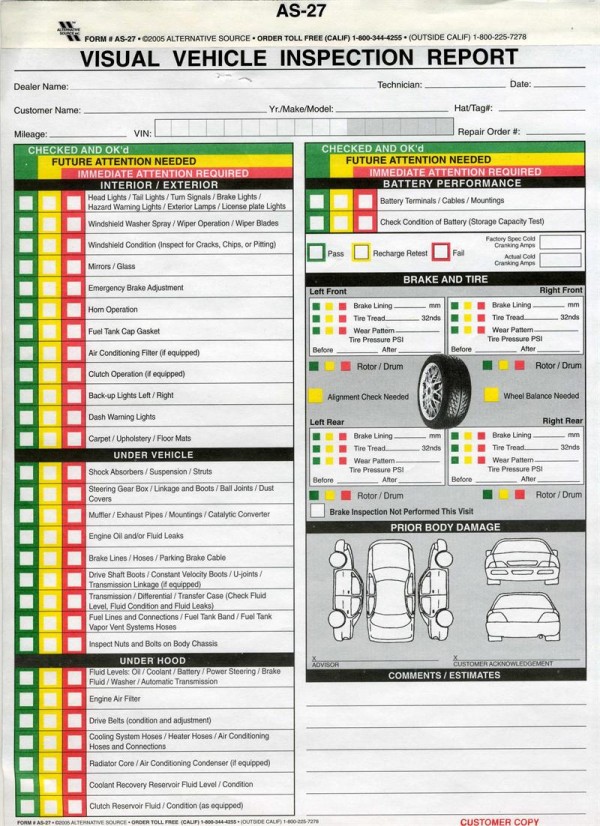5 Efficient Ways to Help Family and Friends With Their Cars
Posted on Dec 2, 2022 in Technology | 2 comments

The job description for a “Family and Friends Fleet Manager” may look like this:
– Must have experience working with, on or around automobiles, preferably multiple makes, foreign and domestic.
– Must demonstrate proper maintenance knowledge of routine procedures, for multiple automobiles, including oil changes, tire rotations and fluid exchanges.
– Must show an ability to answer questions and take calls late at night/early in the morning, during weekends and vacations regarding an issue.
– No pay.
– Acceptance of the fact cars break when they want, often at inopportune times, in terrible weather on a crowded road.

Being the “car guy” of the family, I get asked all the time for help. I have become the “go to” when one of my family members or friends is having a problem with their vehicle. Perhaps you are this person too, always getting calls and texts asking “what’s wrong with my car?”
Here are 5 tips to help earn the continued trust and respect of your loved ones as a “Family and Friends Fleet Manager.”
#1 – Always Listen
If you have helped somebody with their car no doubt you have heard something like this:
“Well, I was driving and it made this noise and then there was another noise and so that must mean the oil right?”
“It keeps struggling and then there is a noise but it never did that before, only when I hear that sound.”
“My stupid car won’t start.”

UGH I HATE MY CAR!
So the point here is: many people don’t know what is happening and because they fear the worst, they naturally become flustered. Pair that with the emotional attachment most people have with their automobile (whether they know it or not) and a breakdown in communication arises. Think about it for a moment. The next time you are frustrated or worried something will cost you money (and car repairs can be expensive) see how well you actually communicate. The idea is to let your family member or friend vent out everything wrong with their car. Sometimes, you may have a family member who is not well versed with autos at all. My sister-in-law is like this. I just listen to what is going on so that way, she doesn’t feel stupid for asking.
#2 – Gather Information
Once they tell you what is going on and you have fully listened; now gather information. This is a vital piece of the puzzle and your greatest ally in getting any car fixed. You can never have enough information. Ask things like:
What speed did it happen at? Slower or faster?
What did the noise sound like? A clunk? A grinding? Did it happen over bumps or not?
Are there any check engine lights?
Did you notice it when the car was cold or had it been running awhile?
Was it a hot day or cold day when this happened?
When I was a Service Advisor, these are things I asked my customers. Their answers I would relay to the technician so we could get the car fixed properly. Only with the right information can you help your loved ones with their car.

Not the real Carl Anthony
Actor Portrayal
#3 – Know Limits
If you can properly diagnose problems and fix them yourself, then by all means go ahead. No doubt your family and friends well trust you to get dirty and take care of what needs to be done on their car. You will have also saved yourself hundreds in shop labor costs.

Watch and learn boys!
Yet, modern vehicles are increasingly complex and require special tools and training to accurately diagnose. Manufactures and dealerships spend many hours educating technicians because automobiles are no exception to the evolving trend of technology. If something (despite good intentions) is over your head, take it to a dealership and consult with a Service Advisor. I have seen well meaning people attempt to fix a car themselves and end up doing more damage in the process.

“I see the problem, honey. That darn muffler belt flew off again.”
It subsequently costs them more money.
#4 – Get Organized
Aside from my F-150, there are 6 vehicles I care for in my family. I know the tire size of each one, what the tread depths are and when they were last rotated. I keep track of what type of oil they take, when the last time it was changed and when any major service was performed and why. I drive each of them periodically to listen for anything out of the ordinary.
It may seem excessive but keeping a record like this helps me catch problems as they occur.
#5 – Educate
After you take care of a maintenance concern for a family member or friend, do explain to them what it was. If you did the labor yourself, let them know how you did it and what parts you replaced. If you had a reputable shop perform the work, go over the inspection sheet. And remind them, as I do with my sister in law, “the next time something like this happens, let me know right away.”

An inspection sheet, like this, is commonly used by reputable shops and dealerships. They can be a great resource for helping family and friends better understand their vehicle.
There may not be any pay as a “Family and Friends Fleet Manager.” In fact, it will probably cost you – time for sure and maybe even money. However, it is part of the responsibility and rite of passage intertwined with being a dignified car guy or girl.





.gif)


Good tips. Make sure your car is in good working order before heading off. Know your car parts, so that in emergency also you can handle your vehicle more efficiently. Pre-planning and practice take the anxiety out of family road trips.
Thank you for reading and sharing your thoughts Dianna!